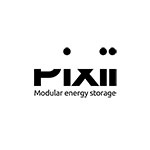Stepping stones for the BESS technologies development
04 Mar 2025 @ 10:00 - 15:00

On Tuesday, 4 March 2025, from 10.00 am, at Biavati Events in Bucharest (2B Serghei Vasilievici Rahmaninov Street – see map), Energynomics proposes a new meeting dedicated to battery energy storage solutions, following the success of the conference in 26 September 2024. Throughout the day, we will outline the stepping stones for accelerating the energy transition: from reducing grid imbalances and optimising costs, to developing innovative business models and seamlessly integrating BESS technologies into national grids. Through interactive sessions and relevant case studies, we will explore the challenges, opportunities and policies that can make energy storage a strategic pillar for decarbonisation and energy security!
Access is allowed based on a €75 + VAT admission ticket
CONTEXT
Battery energy storage has become an essential element in the transition to renewable energy sources, providing flexibility to electricity grids and stabilising energy flows. For utility-scale, C&I and residential projects, batteries are the main solution to control energy flows and improve financial flows.
The increasing demand for storage solutions is supported by national carbon reduction targets and resources committed through the National Recovery and Resilience Plan and the Modernisation Fund.
Dozens of firms are poised to offer equipment and services including energy management systems, hybrid system operation and maintenance, generation capacity aggregation, consumption profiling and demand-response to enable the so-called “energy islands” and energy communities of the future.
Challenges
The complexity of the regulatory framework
Adapting to the regulatory framework can be a significant challenge in deploying energy storage systems at any scale.
Technical integration and operational reliability
Ensuring extensive and seamless integration of BESS with existing renewable energy assets and grid infrastructure, as well as integration into the production/consumption streams of beneficiaries, requires careful planning and a high level of expertise. It is also essential to involve insurance companies in the projects to ensure that they are adequately prepared in case of failures and fires.
Market volatility
The integration of storage systems into the electricity market requires behavioural adjustments and the use of automated IT systems, which can complicate the planning and implementation process. Revenue streams for battery storage may be subject to market fluctuations, particularly in ancillary service markets.
OPPORTUNITIES
Three benefits
Energy storage systems reduce dependence on fossil fuels and stabilise electricity grids. In addition, they improve the return on investment in renewables, such as solar photovoltaic (PV) or wind power, by maximising the use of the energy produced and reducing the need for additional generation capacity.
New financial and business models
The development of new business models, including public-private partnerships, and access to European funds offer opportunities to finance large-scale storage projects, making them more economically viable. At the same time, storage is enabling new behaviours in the energy market, greater flexibility and efficiency for electricity producers and consumers.
Jobs and value chain development
Investments in local manufacturing of batteries and energy storage components boost national economy and can turn Romania into a regional hub for storage technologies.
THEMES AND AGENDA
09:30 – 10:00 Guests registration
10:00 – 10:05 Introduction Gabriel Avăcăriței, Chief Editor Energynomics
10.05-10.15 Mircea Cârlan, General Director, General Direction for State Aid and European Funds Ministry of Energy
10.15-10.30 Vicențiu Ciobanu, CEO Prime Batteries Technology
10:30 – 11:40 SESSION 1 – Reducing imbalances and managing energy flows
We will explore efficient battery energy storage solutions to optimise balancing costs for renewable energy sources.
- Cosmin Cheran, General Manager Think Blu Solution
- Răzvan Copoiu, Deputy CEO, Enevo Group
- Duncan Gordon, Head of Renewable Energy, Gallagher
- Adrian Paraschiv, Country Manager Photomate România
- Eugen Pitic, Business Development & Sales Manager, YEO Romania
- Morten Schoyen, Director Global Sales, Pixii AS
11:40 – 11:55 Onder Akar, CEO SmartPulse
11:55 – 12:10 Adrian Stan, Founder and President of CA, AJ BRAND
12:10 – 12:35 Coffee break
12:35 – 13:45 SESIUNE 2 – Business models encouraged by BESS technology
BESS technology energises business and service models in the energy sector. We will assess the energy aggregators and services associated with these technologies, and their impact on beneficiaries’ behaviours.
- Andreea Gilicel, Head of Finance and Trading, Nofar Energy
- Petya Dimova, Head of Enery Portfolio Optimization Enery
- Iulia Meiroșu, CFO Enexus
- Dor Marian, Founder Wiren
- Raul Toma, Managing Partner EVOLVE Energy Management Solutions
- Elena Popescu, CEO Elektra Renewable Support
13:45 – 14:15 Coffee break
14:15 – 15:15 SESSION 3 – Approaches for grid of for BESS solutions
We will focus on the policies and regulations needed to integrate BESS into the energy grids in Romania, discussing the legislative challenges and policy impacts at European level.
- Mihaela Coroiu, Director Sustainable Energy Projects, EnergoBit
- Cristian Vasile, Solutions Engineer SolaX Power
- Mihaela Popescu, Head of ESS Asset Management Division, Monsson
- Daniela Firica, Project Solution Manager PV/ESS, Huawei Romania
- George Dragne, Energy Industry Leader | Risk & Broking WTW Romania
15.15-16.00 Networking
EXPO AREA
Ideas energize action, but they are put to work in objects. The exhibition space allows the distribution of product brochures, the presentation of solutions and the results of the latest projects to those who need them.
PARTICIPATION
Access to the conference is open to all professionals in the Romanian energy industry and related sectors.
Practical examples will be presented, and guest speakers will answer questions from participants.
This conference is organized by Energynomics with the support of our partners: AJ Brand, Alive Capital, BCR, Big Store, Elektra Renewbale Support, EnergoBit, Enery, Enevo Group, Enexus. EVOLVE Energy Management Solutions, Huawei, Nofar Energy, Photomate, Prime Batteries Technology, Pixii AS, Renomia Gallagher, smartPulse, SolarToday, SolaX Power, Think Blu Solution, Wiren, WTW Romania, YEO.
Themes
Priorities for 2025
- Rapid growth of the energy storage market
- Key sectors: utility-scale, C&I and residential
- Growth drivers and associated risks
Impact of technological innovations
- Efficiency
- Scalability
- Cost reduction
Integration of BESS into existing power grids and (industrial) production flows
Regulations and support schemes to boost BESS
New business models
- System services (stand-alone BESS) for power grids
- Storage as an energy service
- Energy aggregators
- New market behaviours
- Microgrid storage













































